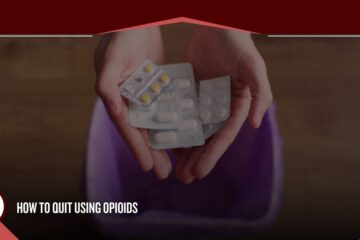What happens when a one-time adventure or escape becomes a demanding need? How do you return from this uncharted journey? Many young adults plunge into recreational drug use seeking adventure, attempting to escape harsh realities, or being driven by sheer curiosity. What often begins as a casual substance consumption quickly veers off into a labyrinth of dependencies, disorder, and disillusionment. At our San Antonio rehab, we comprehend the intricacies of this struggle, offering a lifeline toward recovery, helping you to regain control and navigate the path toward a healthier life. Join Alamo Behavioral Health as we explore the consequences of recreational drug use among teens in Texas.
Recreational Drug Use Among Teens in Texas: A Funny Beginning
The experimental stage, also known as leisure drug intake, involves the occasional or one-time use of substances purely for their psychoactive effects. This stage is often driven by the following:
- curiosity
- a desire for new experiences
- peer pressure
Although the usage appears casual, it’s a critical juncture where patterns can evolve into a harder substance reliance, making it a challenge to reverse. The early intervention offered by drug detox Texas centers, like Alamo Behavioral Health, can significantly aid in preventing this evolution.

Increased Drug Use: A Sad Follow-Up
The transition from recreational drug use among teens in Texas to regular and escalated use can be a gradual, almost imperceptible shift. It’s akin to how marijuana, often perceived as a harmless recreational drug, can become a relentless demand. It starts with an increased frequency, followed by a creeping tolerance that demands higher dosages or frequency to achieve the same effect. As this pattern mirrors many individuals’ experiences with marijuana, services like marijuana detox Texas rehab centers offer can be pivotal in this phase, offering the necessary support.
Several factors can spur this escalation:
- Intense Cravings: The body’s demand for repeated exposure to the drug.
- Peer Influence: The social environment can often promote and normalize increased usage.
- Coping Mechanisms: Drugs may mitigate stress, trauma, or other emotional issues.
This stage often fuels the cycle’s next phase, where use patterns become more problematic.
Emerging Patterns of Casual Drug Use Turning Into Addiction
As regular and increased drug use continues, certain behavioral and consumption patterns emerge, carving the path deeper into addiction. Drug use no longer remains confined to social settings or specific times but starts bleeding into everyday life, disrupting normal routines.
The desire for the drug starts dictating one’s schedule, often leading to isolation from loved ones and significant lifestyle changes. Priorities shift, and obtaining the drug often becomes paramount, pushing aside other responsibilities. These emerging patterns, if unchecked, can lead to severe consequences.

Risky Behaviors and Consequences of Leisure Drug Intake
If you ever thought recreational drug use among teens in Texas didn’t imply any risks, you were wrong. Impaired judgment, a common side effect, may result in hazardous situations such as unprotected sex, reckless driving, or criminal activities. As these patterns become entrenched, they strain relationships tremendously, causing misunderstandings, conflicts, and emotional turmoil. Legal issues may also arise due to drug-related offenses.
The impact of these negative consequences often further exacerbates drug use patterns, creating a vicious cycle. This stage signifies a crucial turning point from recreational drug use to addiction.
Psychological and Physiological Changes
In the grip of escalating drug use, your mind and body undergo significant alterations. Your brain chemistry changes, with drugs rewiring the reward pathways. This manipulation often results in a heightened psychological dependence on the substance, feeding the cravings that drive continual use.
Concurrently, your body adapts to the persistent presence of the drug. This adaptation manifests as tolerance, requiring higher doses to achieve the initial effects. Abrupt cessation or reduction can lead to distressing withdrawal symptoms. But rehab programs such as Xanax detox in Texas and Benzo detox in Texas also manage these physiological changes and provide medical support to ease withdrawal and curb cravings.
Journey to Addiction: Unveiling the Influencers
Addiction doesn’t emerge in a vacuum. It’s a complex interplay of genetic, environmental, and social factors that steer the course from casual drug use to dependence.
Firstly, genetic predisposition plays a crucial role. It can make an individual more susceptible to developing an addiction, acting as a silent catalyst.
Moreover, various external factors contribute to the following:
- Peer Pressure: The influence of friends or colleagues can often encourage drug use.
- Availability and Exposure: Easy access and frequent exposure can normalize drug use.
- Family Dynamics: Dysfunctional or strained relationships may prompt drug use as an escape.
- Trauma or Stressful Environments: Drugs may be used as a coping mechanism to alleviate stress or trauma.
Each of these elements serves as a stepping stone toward addiction.
The Prevalence of Drug Use Among Texas Youth
The prevalence of recreational drug abuse among teens in Texas indicates concerning trends. In 2009-2010, Texas was ranked among the top ten states for past-year cocaine use among individuals aged 12-17, according to the National Survey on Drug Use and Health.
In addition, as per the 2018 Texas School Survey of Drug and Alcohol Use (TSS), alcohol remains the most commonly abused substance among Texas students. More than half (52%) of middle and high school students in Texas had used alcohol at least once in their lifetime. Additionally, 29% of the students surveyed reported drinking alcohol in the past month.
Comparison to National Rates
The alcohol use rates among Texas youth were higher than the national average. For instance, about 30% of high school seniors nationally reported having alcohol in the past month (Monitoring the Future, 2018), while 47% of high school seniors in Texas reported the same.
These statistics highlight the importance of addressing recreational substance abuse among teenagers in Texas. Effective prevention programs, education, and community support are crucial in reducing drug and alcohol use among young individuals and promoting healthier lifestyles. It’s essential to continue monitoring the trends and implementing strategies to protect the well-being of Texas youth.
Seeking Treatment and Recovery in Texas
Acknowledging the need for help is often the most challenging yet crucial step toward recovery. Services like Fentanyl detox in Texas offer solutions. Treatment involves breaking the cycle of addiction and rebuilding one’s life. From medically supported detoxification to personalized therapy plans, every component of the recovery process actively addresses the individual’s unique needs. It’s a journey of healing, rediscovering strength, and cultivating resilience. With compassionate support and expert guidance, recovery is not just a possibility but a promise.

Prevention and Education: The Pillars of Change
While treating addiction is vital, the ultimate goal is to prevent its onset. Prevention is rooted in education — recognizing the risks of drug use, the progression from leisure drug intake to addiction, and the realities of this life-altering condition.
Education fosters informed decisions, promotes healthier lifestyles, and builds resilience against substance use. Knowledge is our most potent tool. Educating ourselves and others about recreational drug use among teens in Texas can demystify addiction, combat stigmas, and encourage those struggling to seek help. Let’s cultivate a community of understanding and support where veterans and others struggling with addiction are empowered to navigate the storm, find refuge in recovery, and reclaim the helm of their lives. Your journey matters. Let us walk it with you.





